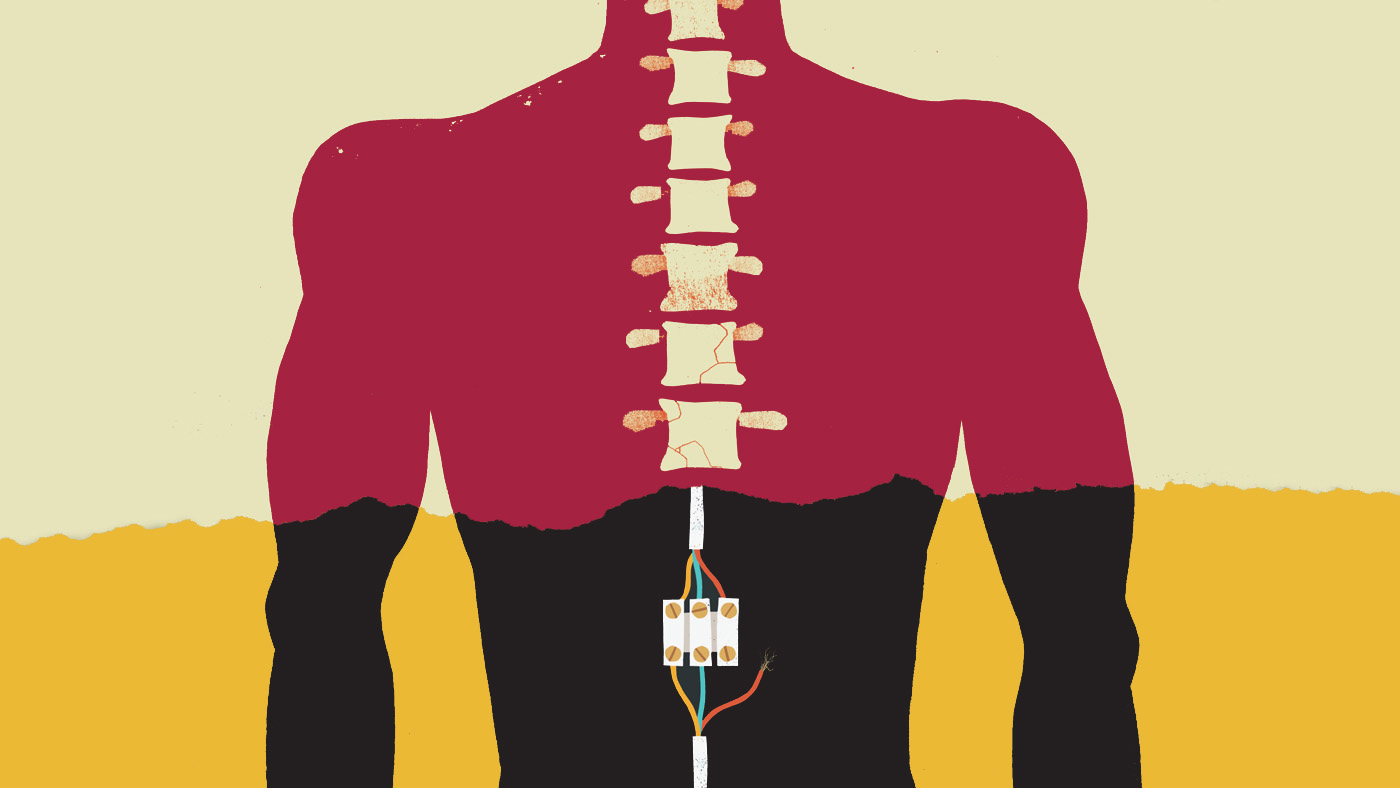It is, for Vladimir Putin, the best of times and the worst of times. He has laid waste to Ukraine’s power generation grid, plunging cities into darkness as winter bites. His armies are advancing, boosted by thousands of North Korean “volunteers”. And Western governments are treading on eggshells around Donald Trump, waiting to see if Washington will abandon Ukraine to its fate.
Yet the rouble has fallen dramatically, inflation has hit 9% and interest rates stand at 22%. Western experts believe that the Russian war economy simply cannot sustain itself beyond 2025: it is consuming weapons and ammunition faster than its industry can produce them, and losing hundreds of thousands of soldiers.
This is the background to the series of strange events happening on the war’s periphery. A Chinese cargo ship, the Yi Peng, is detained in Danish waters after two major undersea internet cables were damaged. A spate of incendiary devices have been found in the German cargo system, prior to last week’s unexplained crash of a DHL plane in Lithuania, which killed one crew member and injured three.
Here, too, there have been suspect packages in city centres and unexplained drone incidents targeting US airforce installations in the UK.
If Western intelligence agencies knew without doubt that each of these acts was the result of Russian aggression they might not fully or immediately attribute them. Some are so serious that you would have to be 100% certain – because downing a civilian plane could justifiably be used to trigger NATO’s Article V collective defence agreement.
And why would you provoke a major diplomatic crisis between NATO and Russia at a time when Biden’s administration is on its last lap and Trump an unknown quantity partying with the far right fanboy Elon Musk in Mar-a-Lago?
So I suspect we are living through a phase of the Ukraine crisis where Putin is trying to stoke fear and tension, while Western security elites are trying to freeze time.
One thing Western military planners cannot ignore is the ballistic missile attack on Dnipro on 21 November. The weapon used was experimental: a regular medium range rocket that would normally fly in an arc to its target, but with a hypersonic weapon attached.
Hypersonic weapons travel at ten times the speed of sound and cannot be intercepted. This one had multiple re-entry vehicles attached – videos show six warheads, each unleashing six sub-munitions with frightening accuracy.
Experts I’ve spoken to who are normally sanguine about Putin’s threats and gestures were concerned both by the form of the attack and its target.
The form – hypersonics plus multiple warheads – is a demonstration of how Putin might hit either Ukraine with nuclear weapons or a western city with conventional ones. “I can do this to you and you can’t stop me,” is the subtext.
Equally symbolic was the target: a factory that historically made rockets when Ukraine was part of the USSR. This is Putin saying: “… and don’t think that, if you are abandoned by the West, you can return to the nuclear-armed status you gave up in 1994”.
The fact is, we now live in a world where Russia is practising, demonstrating and signalling warlike intent towards the whole of Europe. Anyone who thinks it is rational to go on spending below 2.5% of GDP on defending ourselves, or that all the decisions on this can be put off until the middle of next year, needs to wake up.
In the one thousand days since Putin invaded Ukraine he has raised the stakes and broadened his hit list of enemies. And I mean literally – to include murder plots against the boss of the defence firm Rheinmetall.
Putin, in short, is not messing about. Anyone still relying on the Munich-era defence – Ukraine is a faraway country we don’t care about – needs to stop doing so. If Ukraine falls, there will be a refugee crisis ten times bigger than the one in 2015. And Romania, Moldova and Bosnia will all be in the crosshairs next.
I am optimistic that, because they at the very least recognise the scale of the threat, the incoming Trump administration can be persuaded to stand up to it. As they do so, they will survey not only the pathetically low defence spending of European nations – including, to be frank, ours – but the uncertain willingness of Western populations to resist.
The British political class needs to stand up and start leading. A population that has no clue about the scale of the danger, and is (rightly) not given a running commentary on Putin’s hybrid operations, needs to be steered in the direction of resistance.
We are up against an alliance of evil people – Putin, Xi, Khamenei and Kim – who only become rational when faced with hard power. The United Kingdom has hard power to wield and, since the soft power does not seem to be working, we need to think about the hard options.
We could deploy UK anti-aircraft batteries to Ukraine. We could send our military trainers to Ukraine to resume Operation Orbital, which we suspended once the war broke out. And we could send our navy to exert its right of innocent passage in the Black Sea. I am certain that doing so would trigger a chorus of concern from well meaning people – but it’s better to start having the arguments now. Our enemies are escalating their threats against us and, though we didn’t choose to live at a time like this, we must respond to it.
At home we could roll up every Putinist intermediary, every Chinese Communist money laundering network and every Iranian-sponsored crime network. A few nail salons and shisha restaurants might close, and the cocktail bars of London’s Shepherd Market might be quieter, but nobody could mistake our intent.




